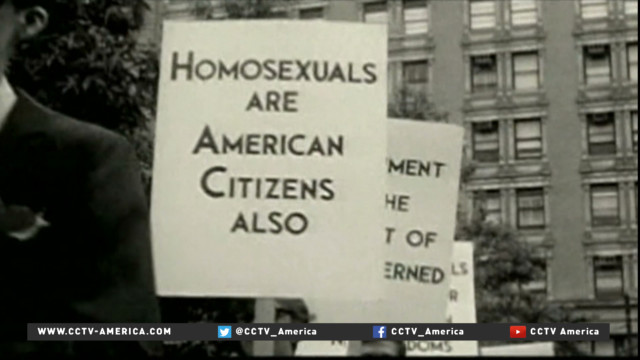According to U.S. federal authorities, LGBT Americans are more likely than any other minority group to be targets of hate crimes. Across the country, many in the community are now demanding protection and action.
CCTV America’s Roee Ruttenberg explains.

Pulse nightclub was not Orlando’s most crowded venue that deadly Saturday night. But it was a popular go-to spot for the city’s LGBT population, which may be why it was targeted. At vigil’s across the country, including one in Washington DC, many expressed solidarity and outrage.
Violence against the LGBT community didn’t start in Orlando, and likely won’t end there.
Nearly 50 years ago, police in New York raided the Stonewall bar, beating the gay men who had gathered inside and helping to ignite the gay rights movement in the United States.
A few years later in New Orleans, an arsonist set fire to a gay bar, killing 32 people inside. Some local churches refused to bury the victims. Attacks on various scales continued for years.
Just two years ago, on New Year’s eve, an arsonist in Seattle set fire to the steps of a club hosting more than 700 people, many of them local LGBT leaders. The fire was quickly put out, and no one was injured.
There have also been countless attacks on individuals. Harvey Milk was San Francisco’s first openly gay city councilman. In 1978, he was gunned-down by a colleague, whose light prison sentence prompted these riots one year later.
And Matthew Shepard, the 21-year-old Wyoming student was beaten, then hanged on a fence in an open field, and left to die in 1998.
According to the FBI, members of the LGBT community are now more likely to be targets of hate crimes than any other minority group in the country. The real number, analysts have said, may be even higher because many in-the-closet LGBT people fear reporting attacks or police don’t pass along the information to federal authorities.
Conversely, as LGBT Americans become more accepted in progressive states, some say, they are also becoming more visible targets.
 CGTN America
CGTN America

